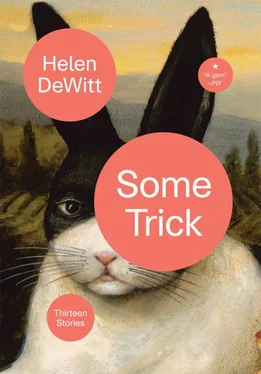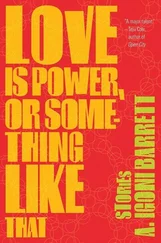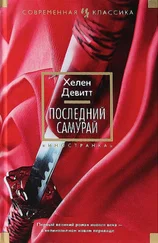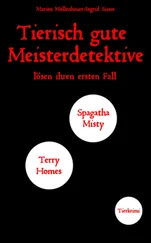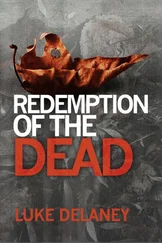The virtues of the French style were usually said to be clearness of phrasing, richness of shading, a predominance of the legato element, a strict avoidance of tempo rubato. While it was not true that Morhange had the vices which were the opposite of those virtues, his attack on the keyboard was something very different. The massive shoulders hulked over the keys; fingers like cigars grabbed at chords like bunches of bananas.
Morhange had extraordinarily long arms and a powerful upper body which he had developed further through prolonged exercise on a set of rings and bars at the local gymnasium. He was known to his fellow students as the Gorilla. One of them said later that one of the strangest sights he had ever seen was that of the Gorilla going through his daily gymnastics: he had a strong, though not particularly attractive, voice with a huge range, and as he went through the various contortions of the ring or the bar he would sing phrases from Alkan’s Funeral March for a Dead Parrot . Oddest of all, he said, was the way no one else in the room took the slightest notice, for it was apparently by now commonplace. Above his head a figure hurtled through the air —
The figure hurtled back —
& back again, on a cascade of notes of inexpressible pathos:
As-tu déjeuné?
As-tu déjeuné?
As-tu déjeuné?
As-tu déjeuné?
As-tu déjeuné, Jacquo?
Eh de quoi?
Eh de quoi?
Ah!
He was asked later whether he found it difficult to take on a pupil who had been trained by someone whom he had regarded with undisguised contempt.
— Contempt?
— You spoke of the pianism of the Machine Age —
— I said that?
— Yes.
— You play the violin?
— No?
— The violoncelle?
— Unfortunately not.
— The piano is quite a clumsy instrument by comparison and yet if I had to play a little phrase of three or four notes it would be easy to play it fifty or sixty different ways, words are much more clumsy still. I don’t say that I did not say what you said I said a minute ago, or even that it wasn’t my opinion years ago, but words bother me. I think that’s why when I talk I often say stupid or banal or offensive things, & then people quote you and say Well why did you say this or But you said that or But don’t you think this — & I want to say, well I had to say some words. I don’t go around with a lot of words in my head, most of the time there is something going on my head but it’s a piece of music, the minute I wake up I might lie in bed for an hour or two just listening to something in my head and if I think of different ways it might be played I don’t even have the words What if I played it like this? in my head, I just hear it one way and then another and then another — if someone asks me a question I want to play some little phrase, I want to say, the way I played that piece, that’s what I really mean —
— What about the Affaire Jacquo?
— What about it?
— Were you surprised by the outrage?
— Oh, surprised —
The Gorilla said there was nothing much to say, but then he said
What you must understand is that I was bitterest about Koslowski before the truth about the camps was known, once that was known —
What I mean is that Koslowski was a stupid old man, he existed in a world bounded by the solfège and prizes and three or four posts to which he might rise, a ribbon that might be put on his chest. He considered Jewishness in a pupil an obstacle to advancement. What I mean is that I spent two years as a waiter in Marseille as a result of that blockhead, but once the truth was known I could not accuse the Fossil of anti-Semitism without hyperbole —
The thing you have to remember is that immediately after the War people didn’t know about the camps. It was only later on that the facts started to come out. The thing you have to remember is that I never read the papers, so at first I just heard chance comments here and there, and then I did buy a paper and read an article which described some of those things for the first time —
Anyway I read this article and — You know that little C minor prelude of Chopin, you know DUM. DUM. DUM. de DUM, it’s like a little funeral march, it establishes the minor key in the first chord and sometimes it’s fortissimo and sometimes pianissimo and it comes and goes, it’s a little funeral march — Anyway the article presented certain details and all of a sudden this little funeral march presented itself with its minor key and its fortissimo and its pianissimo as if to say, Well, here I am, something suitable to mark the occasion — well the whole idea of major and minor keys loud and soft fast and slow comprising suitability seemed fatuous — other grand sombre pieces came to my mind as if to say Of course that little prelude won’t do you want something bigger you want some more dissonances you want something very simple you want something tragic and it was stupid.
It was the same when I went to practice, no matter what I did everything seemed stupid, I mean the things one tries to bring out in a passage seemed stupid, the trajectory of a piece seemed stupid, it’s one thing to work on technical difficulties everyone does that from time to time but sooner or later you’ve got to bring the piece to life & now they were just wooden puppets with wooden arms gesturing on a string —
I thought, That’s it, I’ll never be able to play again, & I was trying to think of some job, & meanwhile if you can believe it my parents were urging me to get married —
Anyway I really didn’t know what to do with myself. Before, I would go to the gymnasium for a couple of hours to improve my upper body strength and then I would go and practice for about eight hours or maybe more if it was going really well or if there was some problem, all of a sudden there was this big hole in the day. I was still going to the gymnasium just to have something to do, but the rest of the time there was just nothing. Then suddenly I had an idea. I thought, I know, I’ll read a book .
When I was at school my teachers used to get mad at me because I never did any work, & later the Fossil used to throw up his hands in horror because I’d never read Racine or Balzac or anyone like that, he’d start talking about the musician as homme cultivé — I used to say to him, If you would like me to compose an opera based on the Phèdre of M. Racine I shall be happy to examine the work in question, otherwise I have not the slightest desire to read this, I have no doubt, excellent play. This used to drive the Fossil insane. He would trot out some remark about oeuvre séminale de la littérature française, frankly it was amusing to see him boil up, well there was an element of truth in it but it was also the fact that I simply could not read more than a page — no, a sentence — without some piece of music coming into my head. I really did try to read Phèdre once & I got as far as Depuis plus de six mois éloigné de mon père, j’ignore le destin d’une tête si chère, & then all of a sudden this string quintet of Mozart’s that I had heard the night before came into my head & half an hour later it finished & I was still looking at Depuis plus de six mois éloigné de mon père, j’ignore le destin d’une tête si chère. This always happened whenever I tried to read something so I never read anything, but now it was pretty quiet in my head.
Well, I had a lot of books left over from school, & at first I thought I would read Phèdre by Racine, anyway I looked at my little bookshelf & I had a little Greek text of Thucydide which like all my books had been cut on the first two pages. It was still pretty quiet in my head so I started to read, & there was a preface by Raymond Levecque, maybe you know this, this author had two ways of writing, one quite plain and the other barbarous & scarcely grammatical, there’s a section of Book 3 about a civil war at Cercyre, & apparently it’s quite famous though I’d never heard of it, it’s about how all the words change when people do something atrocious, so they would call a bad thing by a good name and a good thing by a bad name, & in trying to express this he writes this very contorted Greek.
Читать дальше
